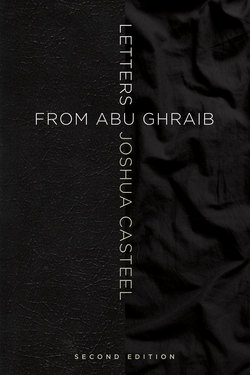Читать книгу Letters from Abu Ghraib, Second Edition - Joshua Casteel - Страница 5
На сайте Литреса книга снята с продажи.
Foreword to the Second Edition
ОглавлениеJoshua Casteel’s account of his time as an interrogator in Iraq and, in particular, at the infamous prison, Abu Ghraib, is so compelling you can almost miss an extremely significant fact—he was good at what he was sent to Iraq to do. He was good at getting information from those he interrogated not only because he seems to have always had acute psychological insight, but I suspect even more importantly he seems to have never lost sight of the fact that the people he was interrogating were human beings. That is no mean achievement because when we are forced to treat someone in less than humane ways we often justify what we assume we must do by dehumanizing the one we are treating as less than human.
So you cannot help wondering how he did it. How did Joshua Casteel keep his humanity while performing the tasks he was given at Abu Ghraib? Luck may have had something to do with it. He arrived at the prison just a few months after the mistreatment of prisoners had come to light. That meant that he was largely spared from having to confront those rituals of torture that seem to have been perpetrated by some at Abu Ghraib for the hell of it. Yet it is still the case that he was a participant in a practice that threatened to destroy the soul of people like Joshua Casteel. So you wonder, how did he do it? How did he participate in this extraordinarily inhuman process yet sustain his humanity?
At least one of the ways he did it also contributed to his being a good interrogator. He was good at what he did and yet he did not lose his humanity because Joshua Casteel was a person of uncommon insight. Consider, for example, his reflections in his email of July 24, 2004, in which he writes about his being complimented for the results he is getting through his interrogations. He observes that the most important thing he does is not lose respect for the men he confronts, even the ruthless ones. That respect, moreover, often takes the form of simply being ready to listen. Listening is crucial, he explains, because people “usually broadcast their lies and anxieties by what they say or fail to say. If one is patient enough to listen, criminal guilt or shame in general will show itself, unless a person is an actor or pathological.”
Remember, he is a twenty-four-year-old kid from Iowa when he makes those kinds of observations about his work. To be sure, in an earlier email he had suggested that interrogation was analogous to being a confessor whose task is to help a person confessing to arrive at the contrition that is a product of their genuine desire for self-disclosure. Such confession is possible because, as Joshua suggests, “no one actually wants secrecy, to carry the memory of shameful actions alone.” He was not only good at what he did, but that kind of insight also suggests he embraced the intellectual challenge of the battle of wits between the interrogator and the one being interrogated.
Also not to be missed is the humor that obviously was at the core of his being. Arriving in Kuwait, he tells us, he knew he was not in Kansas anymore. There is, moreover, surely a connection between his sense of humor and his increasing attraction to the central rites of the church. That he found the taking of the Eucharist the most important part of the week is surely an indication that the gulf between what he was doing as an interrogator and the person he was becoming, a gulf that is so serious one can only laugh at oneself in recognition, could not be bridged.
His increasing theological sophistication, moreover, results in what I can only characterize as judgments that are quite startling. For example, his reflections on the relation of the church and politics are quite amazing just to the extent he is convinced that the church is a sign to the world that human government cannot otherwise imagine. Accordingly it is a mistake to assume that freedom, even the freedom that democracies allegedly offer, can be equated with the freedom that comes from Christ. That judgment leads him insightfully to suggest that democracy is now being forced on people the way Christianity functioned once we became Caesar’s religion.
I have called attention to what almost appear as some of Joshua’s side comments because I think they cannot help making you wonder, where in the world did he come from? He obviously came from Iowa and was a serious evangelical Christian, but those background “facts” are not sufficient to explain his passion for the truth. A passion, moreover, that led him to have to leave the army because he was unable to see how you can, as Jesus demands, love the enemy while trying to kill them. I offer no answer to the question of where he came from. It seems more appropriate simply to praise God that though we cannot explain where people like Joshua Casteel come from they do exist.
Joshua Casteel died from lung cancer when he was thirty-two. He had become a writer, which is not surprising given the literary quality of these letters from Abu Ghraib. Of course, it is a sadness he died so young, but one suspects given the depth of the soul that wrote these letters he would not have us linger over the sadness his death occasions. Rather, he would want us to care about what these letters help us see of what he was learning to care about. So thank God we have these letters that are a testimony to a life that is unintelligible if in fact the God to whom Joshua prayed does not exist.
—Stanley Hauerwas
